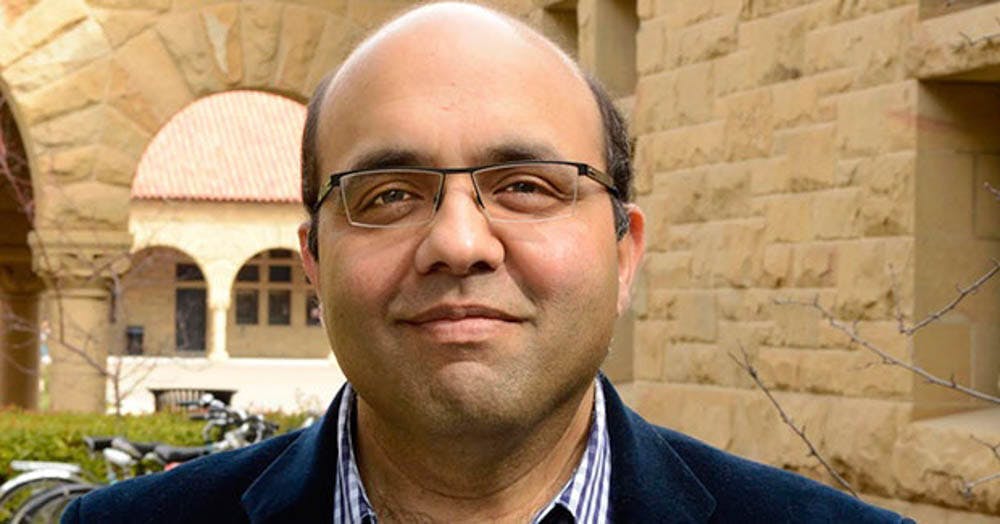Shahzad Bashir, professor of Islamic humanities, will become the new program director for Middle East Studies after Beshara Doumani, current director and professor of modern Middle East history, steps down this summer.
Doumani, who has helped develop the program since 2012, served two three-year terms as director and plans to remain a professor in the program. Doumani said he is excited to pass on his role to Bashir, who will bring leadership experience, intellectual energy and communication skills to his new position.
This academic year marks the beginning of Bashir’s tenure as professor of religious studies at the University. Previously, he taught at Stanford University for 10 years as a professor of Islamic studies and the director of the Abbasi Program in Islamic Studies. When Bashir came to the University for an interview in 2016, he had “more interesting interactions in two days than (he) would have in a year at Stanford,” convincing him that Brown was a more intellectually vibrant place to study the humanities, Bashir said.
Bashir aims to sustain the strength of the program Doumani fostered. He is also committed to developing an academic focus on Islam and the humanities. At the moment, the MES program offers extensive courses on Arab societies, but Bashir hopes to widen the breadth of academic courses to cover nations and cultures in countries such as Iran and Turkey. In addition, he would like to increase the number of MES concentrators, students taking classes in MES and graduate students. Finally, he plans to ensure Persian and Turkish language classes “get the support they need,” he said.
Bashir will most likely face challenges similar to those Doumani confronted while leading the program, Doumani said. “There’s a big gap between public discourse on this region and academic knowledge of this region, and this gap is difficult to bridge,” he added.
“Of course people have different political opinions and different passions, which are fantastic,” Bashir said, but “the challenge of the MES program is to allow people to be passionate, but then to create a space in which we can have a dialogue and discussions” in an academic manner.
About five years ago, Doumani began creating a MES program “different from every other one in the country,” Doumani said. Most MES programs in American universities were established “under the shadow of the Cold War,” Bashir said, adding that those programs represent “an older way of thinking about knowledge.” In contrast, the University’s program charts an innovative path that is driven by academic theme rather than region or religion, he added.
“The thematic foci are connected to the questions that are most important at the moment to us,” he said. Those themes include displacement, scholarship, art and social change, among others, Doumani said, adding that MES is now “integrated into the DNA of the intellectual life of the University.”
“He’s made a conscious effort to bring in people from different fields into the department,” said Isabella Creatura ’18, student leader for the program’s undergraduate group.
Under Doumani’s leadership, the number of graduating MES concentrators has grown from six in 2012 to 14 in 2018, according to a document provided by Doumani.
But “nothing really is worth building if it cannot survive without you,” Doumani said, adding that “it’s time for me to move on.” He looks forward to passing the torch in order to have more time for scholarship.
Amid this leadership change, the MES program will also transition into a center at the Watson Institute for International and Public Affairs, Doumani said. A program is an academic configuration whose function is primarily instruction which may offer undergraduate courses and concentrations, according to the University’s Handbook of Academic Administration. On the other hand, a center is “an academic unit of the University … primarily established to support faculty research or to house a multidisciplinary academic program,” which may offer undergraduate courses and concentrations as well as graduate courses and programs.
For MES to become a center withinWatson, it will have to write a proposal outlining the scholarly, pedagogical and financial consequences of its creation, the handbook states. For the transition to occur, the proposal must be approved by the MES executive committee, Watson faculty and the Academic Priorities Committee, said Edward Steinfeld, director of Watson. The MES program has not yet completed any of these steps.
This transition is mostly a formality, as the program already functions effectively as a center, Doumani said. “The decision is based on a desire to institutionalize what we have already achieved,” including bringing scholars of the Middle East to the University, increasing the size of the concentration, establishing research initiatives and extending outreach to give the program a sizable footprint on campus, he said.
The move from a program to a center will not change anything regarding the undergraduate concentration, programming, research initiatives or funding. The program is currently fundraising for an endowment and hopes to raise several million dollars from donors.





